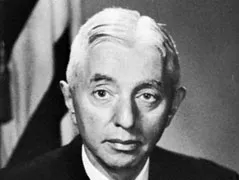Why not?



This is a story initially about a conversation between a US Navy officer and Admiral Hyman Rickover (the Father of the Nuclear Navy). The naval officer was being interviewed by Rickover to join the US Navy nuclear submarine program. Any story about Rickover usually attests to his exacting expectations, and ability to verbally destroy someone who fell short of those expectations. Especially when operating on a nuclear-powered vessel under his command.
During the hours-long interview, Rickover eventually asked the candidate, “Did you always do your best?”
The candidate thought for a while and remembered how there were many times when he could have learned more, or done more, to become better. So he said, “No sir, I didn’t always do my best.”
To that, Rickover asked, “Why not?” and then stood and left the room.
The candidate turned out to be then-future-President Jimmy Carter. Which is almost beside the point, really. What excuse does anyone have for not doing their best? Who is hurt by a person always doing their best?
I am reminded of this conversation by a sports reporter interviewing a just-defeated basketball player, upon being eliminated from the basketball playoffs. The question was, “Do you think this year was a failure?”
The player had been asked that question the year before, when the team was also eliminated from the playoffs, by the same sportswriter. The player could have had an angry response. The player could have pointed fingers, or accused others of playing badly, etc. He did not. Instead, he (among other questions), asked the sportswriter if he gets a promotion every year? No? Does that make the year a failure? Michael Jordan played 15 years, and won six championships. Were the other nine years a failure? The answer of course is No.
Then the quote I will choose to remember, to encapsulate this entire attitude about success and failure: “Some days it’s your turn. Some days it’s not your turn. That’s what Sports is about.” (Here’s the full press conference)
The player was Giannis Antetokoumpo from the Milwaukee Bucks. There was no accusation of others taking it easy, or playing badly, or blaming others for him not succeeding. Only a concept of There is a Goal we are trying to achieve. We work toward the Goal every year. Sometimes you achieve the Goal, and sometimes you don’t. The team always hopes to achieve the Goal, but not everything is the team’s to control. The Goal is the Goal, and how well the team does toward meeting the Goal helps a team (or a person) decide what needs to be done better next time.
Always do your best, even though that doesn’t assure success. It does satisfy one’s soul when the outcome is not favorable, however. Yet, as Jimmy Carter learned during that interview, acknowledging that there were conscious and tangible ways to have done better, that weren’t exploited: A simple question like “Why not?” can bedevil you for decades.
“Some days it’s your turn. Some days it’s not your turn. That’s what Sports is about.” Maybe even life, Giannis.
Why not, indeed.